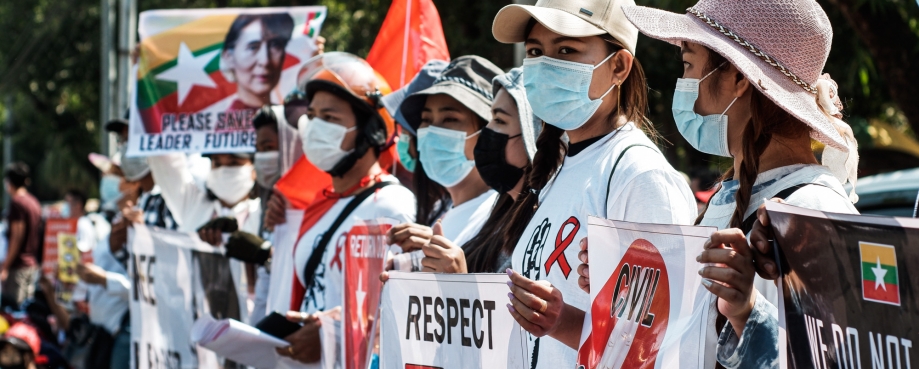
In 2021, ETI regularly convened its members around the deteriorating situation in Myanmar, under military rule. While the presence of responsible business in unstable contexts can offer crucial support, through the provision of decent work, ETI joined others in questioning whether continued presence had the potential to do more harm than good. In the coming weeks, the results of an independent human rights impact assessment will assist ETI and its members in answering this question.
Since the coup d’état in February 2021, protests have taken place across the country, each met with violent crackdowns and widespread human rights abuse. The most recent of examples of this, were last month’s executions which provoked condemnation from across the world, and country-wide horror. Almost a year and a half after the coup, civil unrest continues, with anti-junta protestors defiant in the face of state killings.
Outside of Myanmar, ETI alongside many of its members and allies, have deliberated the best course of action. To continue existing sourcing relationships with the country, or not? The notion of withdrawal may remove the risk of business presence underpinning military rule, but such a decision also poses huge risks to approximately 480,000 people employed in the country’s garment sector, many of whom are women.
ETI was able to commission an independent assessment for the garment sector, on business and human rights, in the current context of Myanmar.
The assessment aimed to answer three key questions:
- To what extent can companies in the sector monitor, prevent, mitigate and provide access to remedy (where appropriate) on severe human rights impacts that the sector may be involved with in Myanmar in the current and developing context?
- What are the requirements of the UNGPS and OECD guidelines for companies when considering whether to continue sourcing or withdraw from Myanmar in the current context?
- What would constitute responsible exit?
For the last six months, Due Diligence Design have conducted the necessary research and analysis to answer these pertinent questions. This assessment has gone well beyond existing surveys. The analysis is based on more than 100 key informant interviews with international and local organisations, companies across the value chain including brands and manufacturers, global and national trade unions, international NGOs and experts; and a workers survey based on a sample of more than 3,000 workers. The assessment aligns with the UNGPs and OECD guidelines and includes technical expertise and contributions from research partners: Impactt, Shift and Luther Law Firm and consultation with OHCHR, OECD and ILO.
The results of this assessment will help inform ETI’s next course of action. The advice and recommendations it makes will not only be of value to the members currently sourcing from the country, but others such as trade unions and responsible business at large.
ETI will publish Due Diligence Design's independent assessment in late August 2022.
